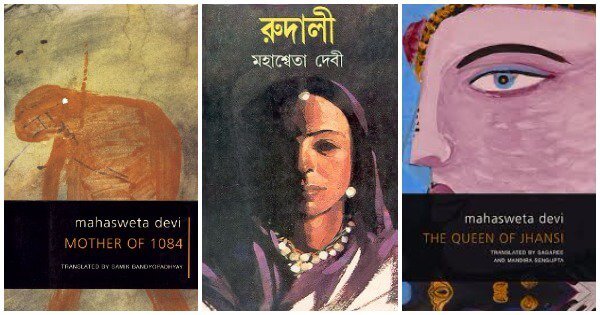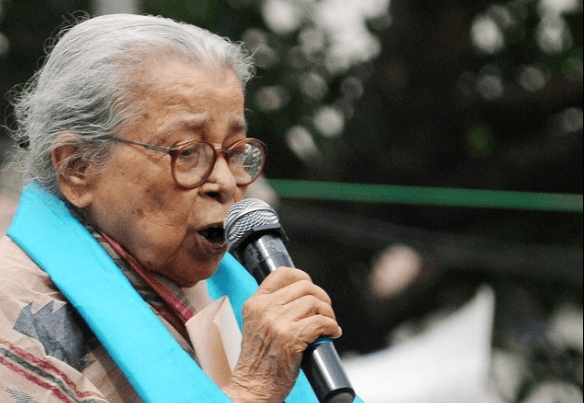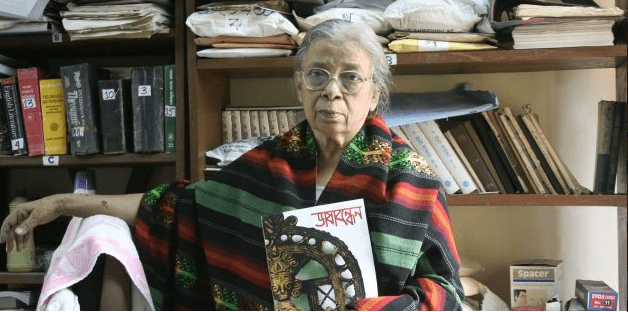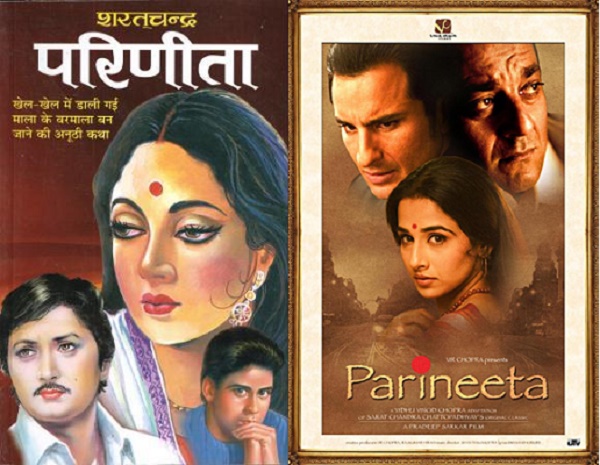What Are Exoplanets And How NASA Detects Life Beyond Our Solar System
Bharti Airtel Set To Acquire Telenor India Within This Year
Google Celebrates NASA’s Discovery Of Seven Earth-Like Planets With An Animated Doodle
Some Home Remedies That Might Sound Bizarre But Actually Work Like A Charm
Akshay Kumar Feels He Has Made Enough Money, Now Wants To Focus On Content & Characters
Delhi ATM Dispenses Fake Rs 2000 Notes From ‘Childrens Bank of India’ With ‘Churan Lable’
Adolf Hitler’s Personal Telephone During World War II Is Up For Auction In The US
From Salman Khan To Rekha, Neil Nitin Mukesh’s Wedding Reception Was Quite A Starry Affair
The Remarkable Mahasweta Devi Legacy Will Live On Forever
On Thursday, India lost one of its finest litterateurs and veteran novelists, Mahasweta Devi, as she passed away in her Kolkata home at age 90. Apart from her contributions to literature, she was also an active social worker, and a staunch fighter for the rights of the oppressed and downtrodden. So what makes Mahasweta Devi such a treasured jewel in the nation's cap? Mahasweta Devi, the Writer Though her works comprises of several novels, short stories and poems, she is perhaps best known for her novel Haajarar Chaurashir Ma, Tin Korir Shaad, Aranyer Adhikar, Rudali and Breast Stories, among others. Many of her works have also been adapted to films.
As a writer, she worked with themes that moved her. She was a traveller, and her stories and novels reflected a deep understanding of human nature, of class and its struggles, of social oppression based on caste and class, and human suffering and bondage. She drew her protagonists and literary characters from real people that she met during these travels, and her language was wonderfully normal. It was a bold statement against the high-brow, lyrical and often inaccessible prose adopted by other prominent authors at the time.
Apart from novels, Mahasweta Devi was also a spirited journalist and social worker, taking notes and understanding history as best as she could through sources that aren't usually touted as 'official'. Her first work, Jhaansi'r Rani (a biography), was more an alternate account of the Indian princess from alternate sources, and not official records. She was the first writer in India to attempt this format of retelling history: one collected not from official ledgers or documents but from word-of mouth stories and unofficial records recounted by locals, especially the downtrodden classes.

Mahasweta Devi, The Social Activist
Mahasweta Devi dedicated a large part of her career researching and writing about the 'savage' tribes of West Bengal (Lodhas, Shabars), of Bihar, Madhya Pradesh and also about Dalits. A staunch opponent of the oppressive, colonial Criminal Tribes Act, 1871, which classifies around 150 Indian tribes as 'born criminals'.
Among her recent activities, the most notable ones are her critique of the land grabbing from farmers in West Bengal for industrial purposes, and her role in co-founding Budhan Theatre, a theatre group consisting of members of the Charra tribe, one of the many tribes considered 'criminal' according to CTA.






